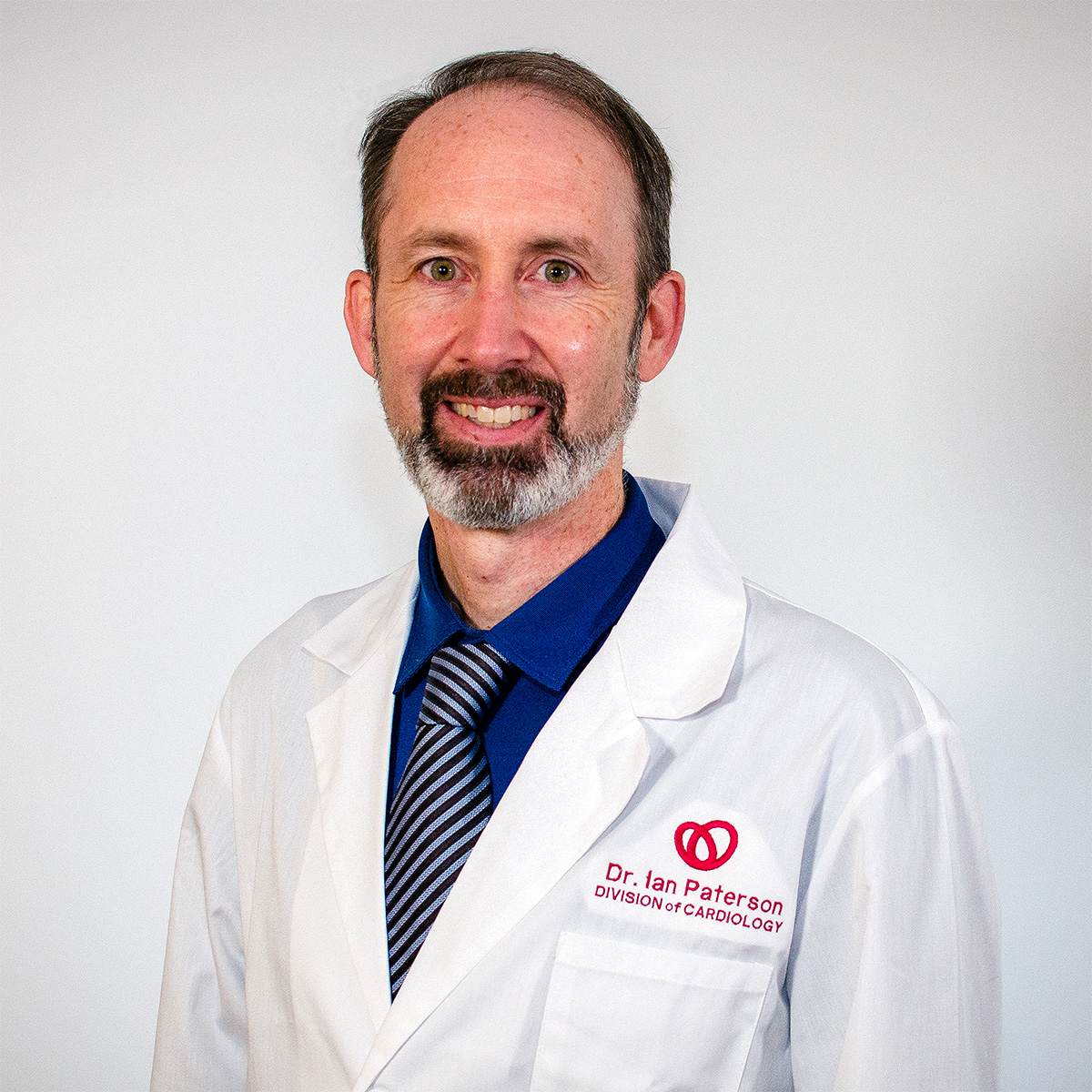OTTAWA, February 26, 2025 – As awareness of rare diseases grows and new treatments continue to emerge, the University of Ottawa Heart Institute (UOHI) is setting a new standard in patient care, research, and education through the Canadian Centre for Rare Cardiac Conditions (CCRCC). By combining pioneering research, specialized clinical care, and first-rate educational initiatives, the CCRCC is transforming how rare heart conditions are diagnosed, treated, and understood.
Ian Paterson, MD, a cardiologist and director of the CCRCC, explained that the centre was created in 2024 to meet an urgent need.

“We identified a significant gap in coordinated care for patients with rare cardiac conditions across Canada,” said Paterson. “While there were pockets of expertise, the care was often fragmented. The Canadian Centre for Rare Cardiac Conditions was created to provide a comprehensive, full-service approach to managing these conditions, not only locally, but with the hope of making an impact nationally and even internationally."
"Our work is not just about patient care; it’s also about education. We are dedicated to training the next generation of specialists and providing education to healthcare providers, researchers, patients, and policymakers,” Paterson adds. “By sharing knowledge and collaborating with others, we aim to advance the understanding of rare cardiac conditions."
As the vital hub that connects patients to specialized clinics at the Heart Institute for evaluation, diagnosis, treatment and rehabilitation, the CCRCC plays a pivotal role in ensuring patients receive the necessary care and support tailored to their unique conditions. The centre uses a team-based approach to diagnose and treat rare heart conditions, giving patients hope and improving their health outcomes when they need it most.
"We are fortunate to have unparalleled access to diagnostic tools, including advanced imaging and genetic testing, which are critical in diagnosing and managing rare cardiac conditions,” said David Birnie, MD, an electrophysiologist and the head of the Division of Cardiology at the UOHI. “With these resources, along with our growing multidisciplinary team, we aim to provide the best possible care for patients and build a model that could be replicated globally."
Rare cardiac conditions are more common than previously thought
More than 7,000 rare diseases have been identified, and it’s estimated that one in every 12 people has one, Paterson said. When put in context, that’s as many as 3.25 million Canadians living with a rare disease, many of which may be undiagnosed or misdiagnosed.
“Given the widespread impact of rare diseases, it’s likely each of us knows someone living with one,” said Paterson. “Addressing this requires more than just treating individual patients. Through innovative research, ongoing collaboration, and the sharing of knowledge, we’re working to make a tangible difference in the lives of Canadians from coast to coast to coast.”
International conference on rare cardiac conditions
The CCRCC will hold its 3rd Annual Rare Cardiac Conditions Conference on Friday, February 28, a date coinciding with International Rare Disease Day.
The conference will bring together the world’s leading experts to discuss important topics such as genetics and optimizing accessibility and care.
"This year’s conference is shaping up to be one of our most exciting yet,” said Paterson. “We’re focusing heavily on genetics, including gene editing therapies and genetic cardiomyopathies, with international experts sharing cutting-edge research. We’re also introducing a patient-led session for the first time, allowing those directly impacted by these conditions to share their perspectives on overcoming barriers to care."
Topics include how to treat heart rhythm problems in people with genetic heart conditions, how gene editing may help treat cardiomyopathy (a type of heart disease), and whether exercise is safe for people with genetic aortopathy (a heart condition that affects the aorta). Julia Cadrin-Tourigny, MD (Université de Montréal), Mark Haykowsky, MD (University of Alberta) and Siddharth Prakash, MD (University of Texas Health Science Center), and Daniel Reichart, MD (Gene Center Munich) will lead these discussions.
The conference will also explore the challenges patients face when trying to access care for rare heart conditions, the potential for repurposing existing medications, how to help patients transition from pediatric to adult care, and how healthcare systems can improve care for people living with rare conditions.
Key speakers such as patient partners Risa Mallory and Anne McAllister, and Edgar Da Silva, MD (University of Ottawa Heart Institute), Peter-Bram ‘t Hoen, MD (Radboud University) and Andrew Mackie, MD (University of Alberta) will share new ideas for improving patient access to care.
In addition to the main sessions, this year’s meeting will include smaller, focused sub-conference discussions on specific conditions like cardiac sarcoidosis, hypertrophic cardiomyopathy, and coronary artery anomalies, among others. These sessions will allow for interactive case studies and discussions of the latest scientific findings.
Download the full program from the conference webpage.
For more information
To learn more about the CCRCC, the Rare Cardiac Conditions Conference, ongoing clinical research at the UOHI, and educational opportunities, or to coordinate an interview with an expert in rare cardiac conditions, please contact the liaison below.
Media contact
Leigh B. Morris
Communications Officer
University of Ottawa Heart Institute
613-316-6409 (cell)
lmorris@ottawaheart.ca

